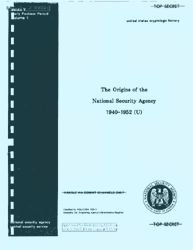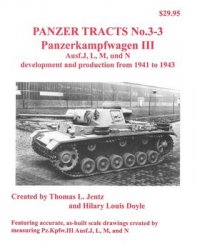The circle about the Nation, who would come to be called the Young Irelanders, accepted O'Connell's decision to call off the Clontarf meeting. However, there were inherent differences between them and O'Connell that would become manifest in the years that followed. Many of their leaders were Protestants, such as the poet and editor Thomas Davis, the landowner William Smith O'Brien, and the Ulster Presbyterian John Mitchel. They and their Catholic colleagues, John Blake Dillon and Charles Gavan Duffy, adhered to a romantic and primarily linguistic and ethnic vision of nationhood, similar to the various romantic nationalisms espoused in continental Europe at the time, including among the Italians and Germans, the aspirations for national unification expressed by assorted principalities, and in the case of Eastern Europe, the aspiration for national liberation from domination by a larger neighbor. O'Connell, on the other hand, for all of his close roots to the Gaelic world, was a political liberal and a pragmatist, willing to espouse nationalist goals, but to accept in their place substantial reforms fostering judicial, administrative, and political equity. O'Connell's pragmatism made him realize that the cooperation of the Catholic Church, the faith of 80 percent of the Irish people, and rectification of its grievances had to be a central part of his mass appeal. The Young Ire-landers believed in the United Irish ideal that religious conviction should have no part in the definition of Irishness.
A central issue that divided them was related to education. In keeping with the pragmatic character of British political institutions, there was no consistent policy of support for education from the government in Britain or in Ireland. Subsidies had been given to the Catholic seminary at Maynooth, while the only university on the island was Trinity College, originally a seminary for the Church of Ireland, which still retained its high church character and limited its scholarships and fellowships to members of the established church. The Kildare Place Society had received annual public grants for the promotion of nondenominational elementary education since 1815, but in fact its direction was in the hands of Protestants. Penal Law restrictions on Catholic-run schools had been removed, which enabled new religious orders, such as the Irish Christian Brothers, to establish schools, including secondary schools, for Catholics. However, their efforts reached only a small minority.
In 1831 the same chief secretary, Stanley, who inhibited the complete removal of tithes for the established church, sought to overcome the sectarianism of the Kildare Place Society by establishing a national board of education with members who were Anglican, Presbyterian, and Catholic. This marked the beginning of national popular education in Ireland. The original goal of fostering nondenominational and mixed schools met with criticism from Protestants. Attempts to appease them irritated the Catholics. Ultimately, concessions were made to all and the national system evolved into one in which most schools were in fact denominational, dependent on the predominant faith in the district, and few were mixed. Such a pattern has characterized Irish education to the present. Thus a national school system came into being in Ireland more than a quarter of a century before the same would develop in Britain. It succeeded marvelously in catapulting the Irish population ahead of much of Europe in terms of popular literacy. As a side effect, however, it contributed to the decline in popular use of the Irish language, which by the end of the 19th century was confined to a very small percentage of the population.
As prime minister, Robert Peel sought to combine his hostility to O'Connell's repeal movement with promotion of actual reform, a pattern that would be followed by later Conservative governments between 1886 and 1906. In 1845 he broadened the award to Maynooth College. He also sought to build upon the example set by the national school system and create a national university, the Queen's University of Ireland, which would be a federation of four "Queen's Colleges," in Belfast, Cork, Dublin, and Galway, all of which were to be nondenominational, charge low tuition, and furnish ample scholarship funds. The Young Irelanders were enthusiastic about the project as a means of enhancing their goal of an Irish identity free of denominational ties. Religious leaders, however, were critical of the "Godless colleges," although provision was made for the various faiths to instruct their own adherents at the schools. Catholic criticism persisted the longest, as the bishops, led by McHale of Tuam, advocated support for a separate Catholic higher educational system in insisting on Catholic instructors for Catholic students in a variety of subjects, including history, philosophy, and some sciences, that could effect their faith and morals. Although condemned by the bishops, the colleges were established, but, aside from Queen's College, Belfast, they would have relatively small attendance for many decades.
O'Connell took the same line as the bishops on the issue, while the Young Irelanders and the Nation challenged the demand for separate education for distinct denominations. Despite these differences, a formal break between them would not occur until 1846, several months after Thomas Davis had died. O'Connell forced the issue by insisting on the expulsion from the Repeal Association of anyone who would not take an oath rejecting the use of physical force in advancing the association's aims. The Young Irelanders, while not at the time advocated physical force, opposed rejecting its employment in principle and resigned or were expelled from the association. Since his old allies, the Whigs, were back in power, following massive Tory desertion of Peel when he endorsed the Whig-Radical cause of Corn Law repeal, O'Connell found himself switching gears by seeking more immediate concessions and de-emphasizing the absolute goal of repeal of the Act of Union. By this time Ireland was already into the great natural disaster of the potato famine, which would make any issue other than feeding the people irrelevant. O'Connell himself, after a last impassioned appeal in parliament for further relief for his suffering people, died on his way to Rome.




 World History
World History![The General Who Never Lost a Battle [History of the Second World War 29]](https://www.worldhistory.biz/uploads/posts/2015-05/1432581983_1425486253_part-29.jpeg)









